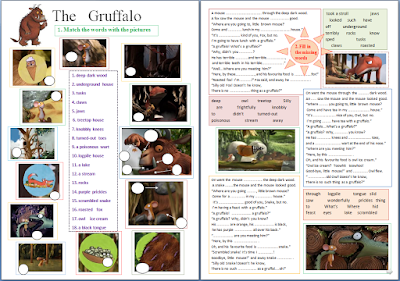
I'd like to share with you how I teach the past form of the verb to be to my elementary students. I have decided to call the game for practising there was/were "The Thief and the Detective". It's been made for my private students but you can adapt it for a big class, too.
The Positive Form
Put 7-10 different items onto the table. There should be single (e.g. 1 car) and grouped items (e.g. 2-3 dolls) in order to practise the singular and the plural forms. The detective turns away/goes out and the thief "steals" some of the items from the table. The detective comes back and says what is missing (e.g. There were 2 cups, and now there is only one"). If he's right the thief puts that item back.
The Negative Form
Put the same items onto the table, but this time the thief has a bag with "his own" stuff, too. He steals some things from the table and puts some of his instead. The detective must say what there was on the table and what there wasn't (e.g. There wasn't a red car here, but there was a yellow cup.)
Questions and Short Answers
Write down the names of any 5 items that are on the table and keep your list a secret. Ask your partner questions to find out what there was in his room (e.g. Was there a doll in your room? - Yes, there was.) The first one to guess all the items from his partner's list is the winner.
Prepositions of Place
You can practise the prepositions of place with this game. While your partner isn't looking, change the location of the things on the table/ in the room. He must say where everything was.
 You can show your students this funny video and use the worksheet as a follow-up (matching, true/false, completing sentences with the new words, present/past simple, asking questions and making negatives in
You can show your students this funny video and use the worksheet as a follow-up (matching, true/false, completing sentences with the new words, present/past simple, asking questions and making negatives in  Past Simple). My students liked the video a lot and I'm sure yours will, too :-)
Past Simple). My students liked the video a lot and I'm sure yours will, too :-)














